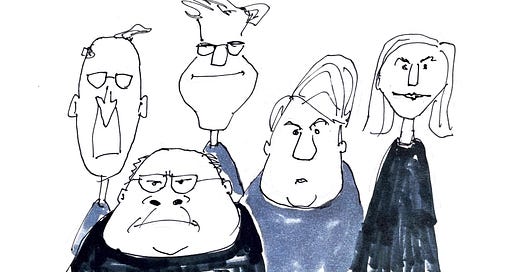In early August, the good people of Kansas voted against a ballot measure that would have stripped from their state constitution a woman’s right to choose — and they did it by a whopping 18-point margin.
Since then, and largely in response to the Supreme Court’s Dobbs decision overturning Roe v. Wade, women have been registering to vote across the country in astounding numbers. Many appear to be supporting Democratic candidates even in states such as Kansas, where Democrats have almost become an endangered species.
One hundred years ago this week, the writer and political philosopher Walter Lippmann published Public Opinion, his account of how democracy actually functions. Lippmann claimed that the public doesn’t form opinions rationally. Opinions emerge from particular events (say, a Supreme Court decision) that galvanize the public’s “irrational” sentiments.
Lippmann didn’t trust those sentiments. He was concerned how easily they could be manipulated.
“As a result of psychological research, coupled with the modern means of communication, the practice of democracy has turned a corner. A revolution is taking place, infinitely more significant than any shifting of economic power.”
(He wrote these words years before the Nazi’s and Soviets chillingly and effectively used propaganda to distort public opinion.)
To deal with this danger, Lippmann proposed the creation of a "specialized class" of professionals to collect and analyze data and then present their conclusions to society's decision makers. The decision makers would in turn use the "art of persuasion" to convince the public what was good for them.
Not exactly a democratic vision.
Lippmann’s proposal may have found its way into graduate schools of public policy, many founded in the late 1960s. They are worthy and important institutions. (I have taught at three outstanding ones — Harvard, Brandeis, and Berkeley.) Yet they do not as a rule emphasize democracy over analysis. Even today, some of my students regard public policy-making as a matter of finding the “right” answers to public problems and then doing end-runs around politics to implement them.
I’ve done my best to disabuse them. Yet how can democracies avoid what Lippmann feared — the manipulation of public sentiment?
Five years after Lippmann wrote Public Opinion, another political philosopher published a criticism of Lippmann’s ideas and offered a far more optimistic view of democracy. His name was John Dewey. His book was The Public and its Problems.
Dewey centered his hopes for democracy on education. Public sentiments are not to be feared, he argued, if schools give people the skills they need to engage in discussion and deliberation — the ability to separate facts from opinions, to communicate effectively, and then come to their own judgments.
The Dobbs decision was leaked May 2. It was formally released June 24. Since then, something dramatic has happened — even in the reddest of Republican states. It seems that people — especially those who bear children — have deliberated with one another and come to a judgment.
We saw the outcome of that judgment in Kansas, in early August. We won’t know about any larger consequences for another two months.
But John Dewey may have been right. This messy, unpredictable, passionate, and sometimes mean-spirited process called democracy could just be working.













Share this post